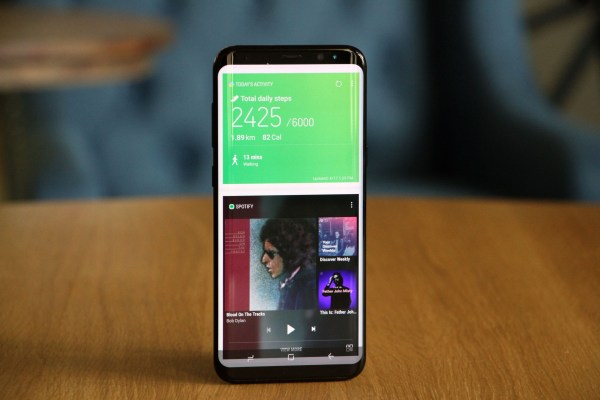In the early days of Android, skins were the norm. Manufacturers looked to set themselves apart from countless competitors with custom design languages at proprietary apps, to the point where many actually slowed down and hurt the experience in the process.
The tide has, thankfully, turned on that front. While a full-vanilla Android experience isn’t always the norm, many learned the hard way that less is more. It’s hard, however, not to note echoes of those bad old days in the new land grab for smart assistant dominance. Between Google Assistant and Alexa, which will almost certainly be appearing on more handsets this year, there are already two major smart assistants vying for Android dominance. But now it seems every Android manufacturer also wants in on the action.
The newly announced HTC U11 is a pretty solid microcosm of what’s happening in the smart assistant space. The company went out of its way to incorporate four on-board microphones in order to appease both Assistant and Alexa (coming soon) users, working directly with Qualcomm to design a system that’s capable of recognizing each AI’s wake word. It’s a good thought. No one — not even Google — can fault the company for offering more choice in that department.
In its next breath, however, the company name-checks Sense Companion, its own smart assistant that you’ve likely either not heard of or largely forgotten about since the company announced it alongside the Ultra back in January. To be fair, the company seems to understand the limitations of its offering, which is precisely why it’s embracing Alexa and Assistant a few months after officially unveiling its offering.
In my own conversations with HTC, the company hastens to add that such an embrace certainly doesn’t preclude the company from leaning in on its own offering. And frankly, I wouldn’t be surprised to see the company attempting to differentiate itself with a more fully formed version of Sense Companion, in much the same way that Samsung has with its admittedly still half-baked Bixby offering.
As it stands, Sense Companion, like Bixby feels like a step backward — an offering with plenty of promises of greater functionality down that road that ultimately doesn’t do much to distinguish or enhance the handset. Instead, it’s a bit of symbolic flag planting by the companies, with promises of things to come. But a bad or even mediocre out-of-the-box experience early of means a greatly reduced likelihood that consumers will try it again down the road.
More and more companies are likely to jump on the bandwagon as they recognize that smart assistants mean so much more than notifications. They’re the gateway to a cross-device ecosystem, including the smart home and beyond. There’s no question why manufacturers like Huawei have expressed intentions to join the fray. It’s getting harder and harder for companies to distinguish themselves in the handset world. Pretty much every flagship is good these days, and while some companies continue to duke it out with screens and cameras, hardware is a hard place to stand out.
Smart assistants, on the other hand, represent the potential for distinction. But tapping into that promise requires a lot more than aggregating notifications and step count. It requires massive amounts of R&D into fields like machine learning, AI and language recognition. And unless you’re willing to make those sorts of investments into a system that can truly compete with the likes of Siri, Alexa and Assistant, your smart assistant probably amounts to little more than a distraction like the Android skins of old.
Because let’s be real — no one really wants to use multiple smart assistants in tandem on a device. That defeats a major selling point of the whole category: offering one unified experience across multiple devices. Smart assistants need to be more than just content-aggregating hubs. They need to offer the promise of taking the smartphone experience to the next level. Otherwise, why bother?
